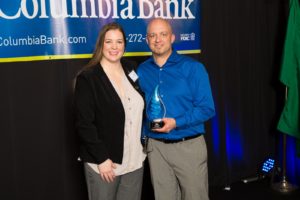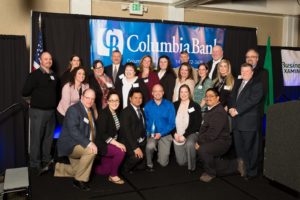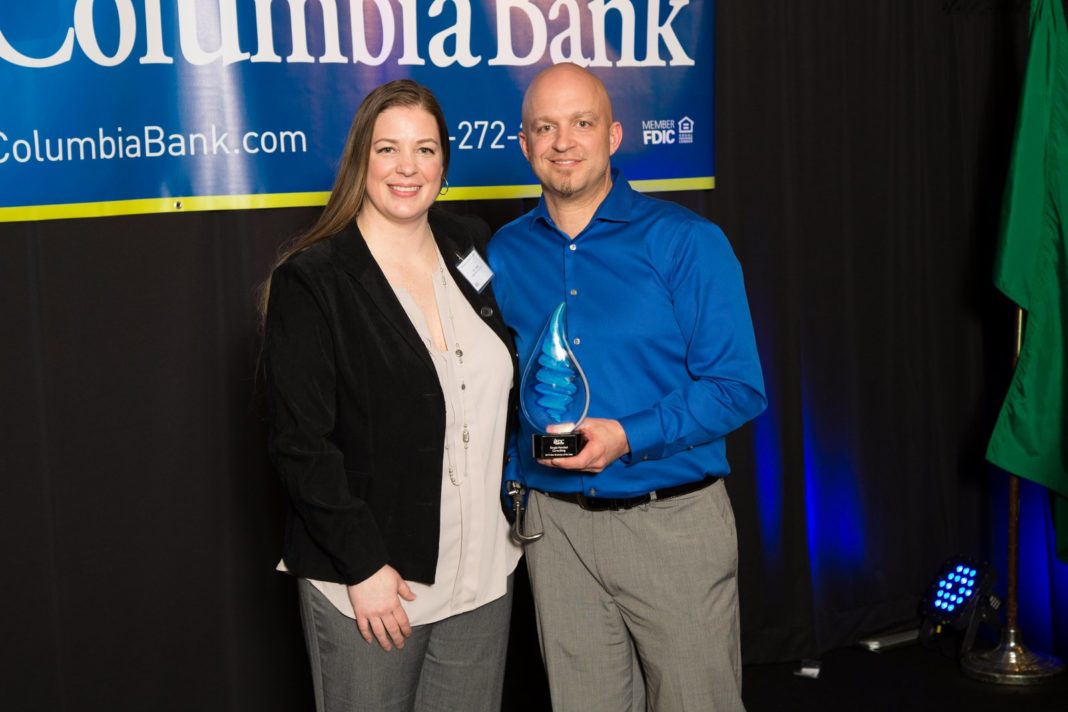Two things you will never hear at Single Handed Consulting: the term “injured worker” and cases being referred to by their claim numbers. “These are not numbers; they’re people,” says co-owner, Kevin Leneker. “It’s about relationship and rapport. This is a time in their lives when they need help.”
 Single Handed Consulting provides resources and assistance for workers injured on the job. Leneker has a unique perspective on the issue; his first job out of high school was managing claims for the Department of Labor & Industries. He has also been a risk manager for the City of Seattle, a business owner of a small construction company who has had employees injured on the job, and an injured worker himself. Furthermore, he was born with one arm – hence the name of his business. “I’ve had the opportunity to see it from all angles,” he says.
Single Handed Consulting provides resources and assistance for workers injured on the job. Leneker has a unique perspective on the issue; his first job out of high school was managing claims for the Department of Labor & Industries. He has also been a risk manager for the City of Seattle, a business owner of a small construction company who has had employees injured on the job, and an injured worker himself. Furthermore, he was born with one arm – hence the name of his business. “I’ve had the opportunity to see it from all angles,” he says.

The original impulse to start his business came from what Leneker observed as a claims manager. “It’s a big insurance process,” he says. “The individuals never got the care or service I thought they deserved, and I believed that there was a way to treat someone as an individual, not as a throwaway or someone who’s broken. Often, an injured worker is considered as not having any value. I knew there was a way to go through the process and get them what they deserved.”
When it comes to getting workers back on the job, some of the biggest challenges include a lack of modifications, very few immediately available resources, and mandates in policies that lead to unworkable outcomes. Part of the assessment process involves determining whether a job could be modified so that the injured employee can still perform. However, Leneker says that the standard industry practice can be perfunctory.
“Vocational counselors will call up an employer and say, ‘Can you modify the job?’ The answer over the phone will be, ‘No.’ That conversation doesn’t open anyone’s eyes to other possibilities,” he says. “We require our employees to go to the worksite, meet with the employer, and identify any modifications that can be made. I’d say 75% of the time we find a way to make it work.”

In one case, a warehouse worker who loved her job had injured her back. Leneker applied for a modification that allowed her to use a pallet jack, making it possible for her to return to work. “The company got reimbursed, and it was all funded through L&I,” he explains. “Everyone was happy.”
“Solving the issue is not the employers’ problem,” Leneker maintains. “Their focus is on running the business. Just calling them doesn’t work. What’s needed is communication.” He says that seeing new ways to do tasks comes naturally to him. “Growing up with one arm, I had to think about things differently from the moment I woke up in the morning. When someone is injured at work, there are ways to modify jobs and positions that nobody ever addresses.”
Another challenge is procedural. To assess whether an employee is ready to return to work, Leneker and his team have to include not only the current job duties but also previous work experience. “A lot of times we’ll have to make the recommendation that based on previous experience, you’re able to work,” he says. “Usually, someone makes the recommendation and then the worker is on their own. We’ll help to place you and put you in touch with WorkSource and temporary agencies.”

The company also provides resources like interview assistance and help with resumes for up to five years. “If your resume is bland or geared toward an occupation that no longer applies, we can tailor it to fit an existing position,” says Leneker. “If we can place you back into the workforce, you won’t cycle in the system.”
Leneker co-owns the company with his sister Katie, a vocational rehabilitation counselor, who also began her career at L&I before joining her brother. “My parents kept saying, ‘What have you done?’” he laughs. “‘Our little girl got a state job and you made her quit!’ Fifteen years later, she’s one of the best in the state at what she does, and she’s instrumental in managing our retrospective rating programs.”
One of those programs is an employee retraining assistance program for the Building Industry Association of Washington (BIAW) which Katie created, implemented, and currently manages. “We provide early return to work services and training to their employer members,” says Leneker. “Our services assisted the BIAW in receiving a $20 million return on their retrospective rating pool.”
A newer client is the Association of Washington Business, which contracts with Single Handed Consulting for direct vocational and return-to-work services. “We provide value by reducing claim costs, increasing retrospective rating refunds, and assisting member employers through the process,” says Leneker. “There are a lot of L&I programs that employers don’t use because nobody takes the time to assist and educate. We help them fill out the forms and get reimbursed. Employers love it.”
Leneker’s long-term goal is to raise the standard across the industry. “What was acceptable five years ago should not be acceptable today,” he says. “We have the tools and the technology available to provide everybody with a better outcome. If I can restore someone’s life and career and get paid for it, that’s a win for both of us.”
For more information about Single Handed Consulting, visit www.shcvoc.com or call 360-339-8950.





















































